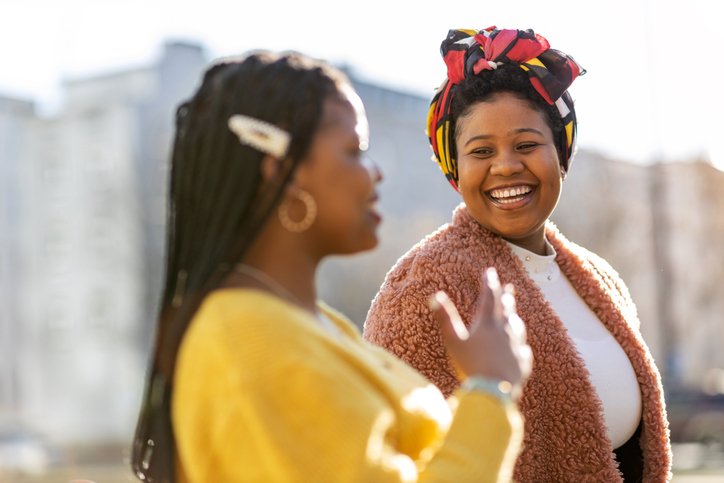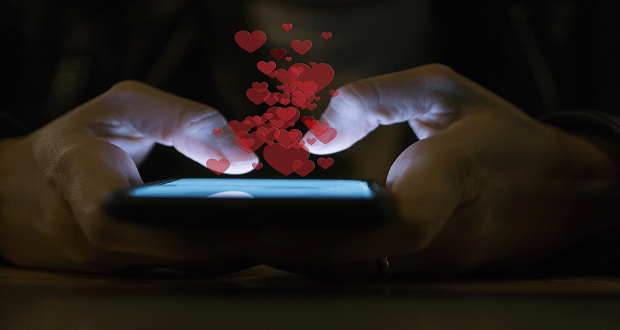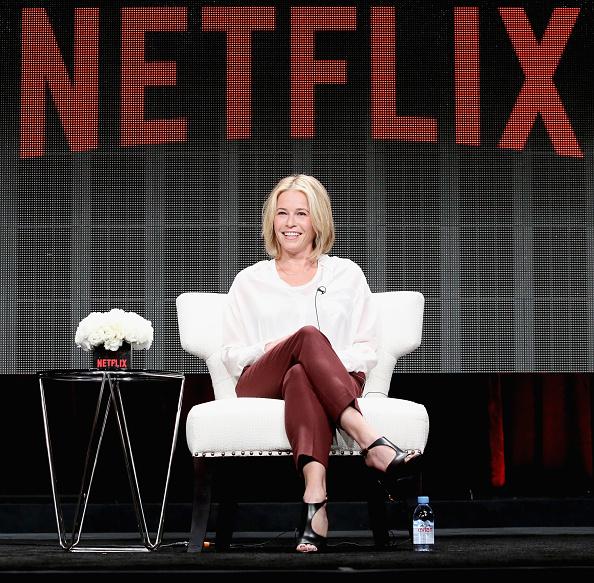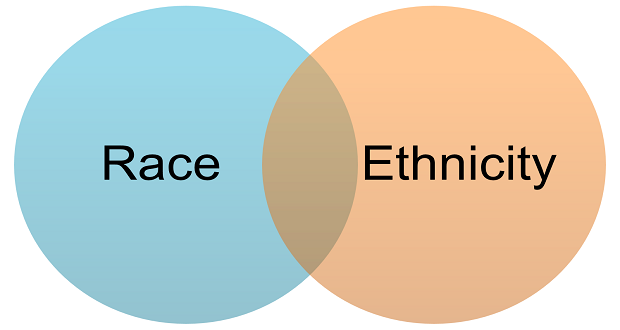
“Wait. Where you from?”
“Say, where you from?”
“Aye fam, where you from?”
It’s kinda hard to believe that I have been away from home as long as I have. My time away from home is old enough to be in the 5th grade; it has its own identity, memories, and lived experiences that have impacted me in a unique way. And even after all this time away from home, I am still being asked this question and I always feel a type a way about it. It leaves a certain taste in my mouth, a taste that is both sweet and sour and sometimes makes it hard to really chew on — like a fistful of old Sour Patch Kids.
On one hand, I cannot believe I have been this far away from home for this long consecutively, especially considering everyone in my immediate family and a huge percentage of my extended family is still there. And that makes sense, right? My family has been living in and around my hometown since my grandparents (on both sides) headed north during the first great migration — and their progeny have had little reason to move. Well… until a few of us from the third generation were forced to leave the city in droves due to the crushing realities of the Great Recession. Lots of experts called this mass exodus from the rust belt the “Brain Drain,” but most folks ‘round my way who moved called it “a necessity” — a necessity in order to attempt to survive and actualize our adulthood.
That is why I am never very surprised to meet other Black folks from all over the nation while I am out and about running errands and taking care of my business. There will often be a casual exchange of pleasantries while checking out, checking in, or whatever it is that I am doing. A customary head nod of acknowledgement, a “Hey how ya doing?” in passing and even sometimes, “Hey sis, I love <insert whichever fly piece of apparel that I had on that day>!”
If I am fortunate enough to chop it up with them just a few moments longer – almost without skipping a beat, I’ll be asked: “Where you from?!” in a mixture of excitement, curiosity, and affirmation. That’s the sweet part.
Now here is the thing, I understand this question isn’t the type of question you ask just any ol’ body. Especially if this question comes from someone you do not know, it won’t be as affirming. The question can be isolating and presumptuous, especially for those who experience constant othering and xenophobia. The question can suggest that the person being asked is “different” and that they do not belong and are “foreign.” The question can erase one’s heritage, culture, and sense of belonging in an instant. It can put a person on the spot and alienate them even with the best of intentions. And that’s all the way real with real life implications.
What I am speaking of is a little something different, though. And it’s different because my intersecting identities make it so. What I am speaking of is both intraracial and intracultural in nature.
For me, this question — “Where you from?” (peep, I DELIBRATELY did not write “Where are you from?” because AAVE/AAE is a language and dialect in its own right) – when asked by a particular inquirer is a welcome one, especially given that I have lived in a city that is nearly 73% white. Any time I get to interpersonally connect with my people is a good time. You see, when my people ask me that question – particularly Black American people and especially working-class Black American people – they are immediately letting me know they see me. They see my culture, they see my heritage, and they can hear the music in my voice – something so many of us are taught to tone down, diminish or even erase when we are in the workplace, at school, and basically anywhere in predominately white spaces, especially in this VUCA world. That’s the sour part.
This question, 'Where you from?' when asked is a welcome one. When MY people ask me that question – particularly Black Americans – they are immediately letting me know they see me. Click To TweetThey know that I just live here, but I am not from here – that I didn’t let these spaces and places nullify my beautiful heritage and culture — and that’s a big deal. That is why I get hype when I see folks like Amazon Union worker Chris Smalls show up to press conferences and even interviews with POTUS in his NY Yankee fitted hat, silk do-rag, and bright yellow and red bomber jacket speaking with the familiar iconic linguistic swagger of a Black New Yorker. Or when I hear Ryan Coogler talk about his filmmaking process, he speaks the exact same way — no matter if he is on HOT 97 or the Hollywood Reporter Directors Roundtable — and that simple nuance is critical. When it comes to Black American women, on the other hand, who have strong Blaccents and intentionally do not code switch around non-Black people at work, I immediately identified two entertainers — Tiffany Haddish and Lizzo. And that makes me wonder, how do additional intersections such as gender, sexual orientation, and even body size further complicate the politics of authenticity in white-dominated spaces as well as via the white gaze? Where might we hold more space for those who identify as female for authentic communication and tone in the workplace that we may not for a woman or femme-person outside of the entertainment industry – even within our own communities?
I get hype when I see folks like Amazon Union worker Chris Smalls show up to interviews with POTUS in his NY Yankee fitted hat, silk do-rag, and bomber jacket speaking with the linguistic swagger of a Black New Yorker. Click To TweetYou see, the thing about white supremacy culture is that it is insidious. Remember the gem that poet and writer Kyle “Guante” Tran Myhre gifted us: “white supremacy is not the shark; it’s the water.” White supremacy is everywhere, and it sneaks up on you from the most unassuming places and occurrences. It’s in all of us. White supremacy culture dictates what is deemed acceptable, safe, and worthy. What is seen as “professional,” “nice,” and even what is understood to be the universal truth – all influenced by white supremacy culture. And when you’re a Black person that lives and works in a city that is 73% white, there is not a shortage on how many times you’ll get the “opportunity” to engage with some egregious expectation that you must change, shift, and contort yourself into a pretzel in order to be seen as more acceptable, likable, professional, palatable, relatable…and safe. This affects everything – but more specifically, it affects your livelihood. And let me make something abundantly clear: being my most authentic self, especially in the workplace and around non-Black folks, is a privilege. Full stop.
When you're a Black person that lives and works in a predominantly white city, there is an expectation that you must change and contort yourself to be seen as more acceptable, professional, palatable...and safe. Click To TweetMost folks from around my way were forced to change their speech in order to survive and even have a job that covers their most basic needs. I grew up being taught that I needed to have my “white voice” ready to go when I was at work and school so that I could be taken seriously and advance in my academics and career. But what I learned over the course of my lived experience is that no matter what I did to assimilate or contort myself into a knot trying to make white supremacy value me – that it did not matter. And as much of a privilege it is for me to no longer code-switch at work or any other white space, not doing so comes at a price. I am taxed and have missed opportunities because of my refusal to do so. I’ve missed so many opportunities for advancement because of my refusal to code-switch, but I kept my soul and remained intact in the process. And in society and any culture that values whiteness as the uncontested center, that will always be the case.
I’ve missed opportunities because of my refusal to code-switch, but I kept my soul and remained intact in the process. And in society that values whiteness as the uncontested center, that will always be the case. Click To TweetFor example, in the span of one doctor’s visit, three Black healthcare professionals asked me that beloved question and shared with me various stories of how much trouble they had gotten into for just the sound and the tone of their voice and how careful they need to be as not to “scare patients” – let alone how the words came out. Their rich, sweet, deep, and beautiful voices are a consistent source of reprimand and fear for colleagues and patients who have been socialized to believe that anything that sounds “Black” – particularly when it comes from Black people – is unprofessional, unintelligent and unsafe. And this happens when they are already code-switching. Imagine their experiences if they were not.
Their stories deeply resonated with me. I cannot count how many times I have had to preemptively “warn” non-Black folks who center the white gaze, at work and non-workspaces alike, that when I speak you will notice I do not code-switch, and I speak with a deep and direct manner. And while there is no one way to be Black and certainly no one way to sound “Black,” I also let folks know at the very first opportunity I speak with an immediately identifiable native “Blaccent.” A Blaccent that is associated with the stereotype of what a Black voice sounds like from my region and one that only seems to garner recognition, acceptance, celebration, and validation when it is used and appropriated by non-Black people.
The good news is that I am able to use the moment to invite my learners, colleagues, and clients to sit with how my vocal presentation and register may impact their response to me and challenge them to understand why their reactions to simply hearing my voice and the way I speak may put them on the defense, make them uncomfortable, or simply write me off and/or my expertise.
If you struggle with that, I invite you to dig deep into where you learned what an “appropriate” sounding voice and an “acceptable” way of speaking came from and set intention around how you can challenge yourself to let go of the idea that the way a person speaks, or writes is directly tied to their value, intelligence, and worthiness. Can you imagine how these ridiculous expectations could make for a VUCA work environment?
Dig deep into where you learned what an 'appropriate' sounding voice and an 'acceptable' way of speaking came from. Challenge yourself to let go of the idea that the way a person speaks is tied to their value. Click To TweetSo, when I am at the pharmacy, at an interview, checking out at the grocery store, at the doctor’s office, or even presenting materials at work, and another Black person asks me “Where you from?” — what is essentially being said is “You’re safe to be myself around,” “I see you,” and “I can take a break from masking/preforming for the comfort of others for a moment,” and I do not take that trust lightly. I do not play about allowing anyone to shame me into voluntarily giving up such a huge piece of my culture no matter how far away I am from home or how long it’s been since I have lived near my people. And in doing so, it is my hope that I can be a possibility model for others. Like author and activist Kimberly Jones has said time and time again, “the way I speak is cultural, not remedial.”



















Fantastic article. Thank you! I’m a JEDI practitioner and I’m currently laser-focused on decolonizing what it means to be considered a “professional”. I use a question I learned here on the TWG website: By whose standards? Who gets to decide what is or isn’t professional? I’m privileged to have been asked to present for a national leadership training program and this is exactly what I’ll be talking about, and more importantly, facilitating discussions about.
Thank you for adding another tool to my toolkit! Keep bringing your whole self to work, not just the parts that make white people comfortable.